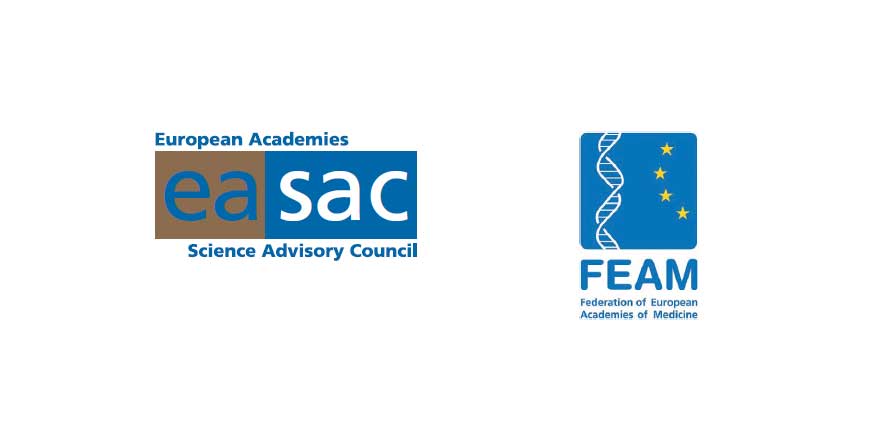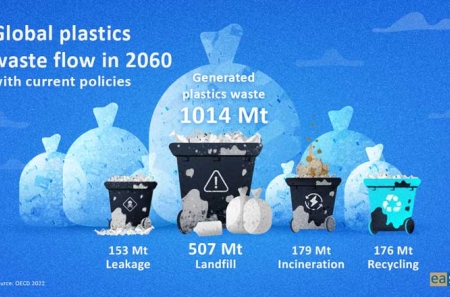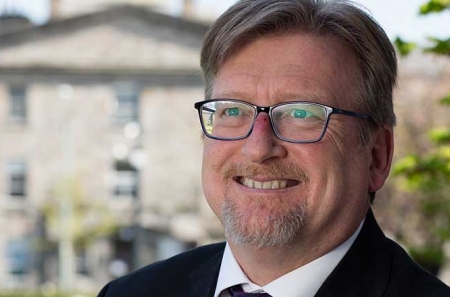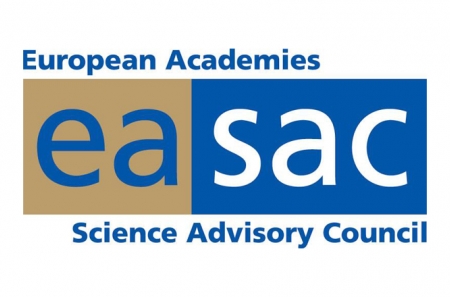
Decarbonisation of the Health Sector
20 April 2021This Commentary by EASAC and FEAM emphasises the responsibility of the health sector to reduce its own GHG emissions, and work with other sectors to accelerate decarbonization of the wider economy
The growing and potentially disastrous effects of climate change on mental and physical health – including increased exposure to extreme heat, floods and droughts; the effect of declining crop yields on nutrition, increasing incidence of vector-borne diseases such as dengue and those indirect effects mediated through socioeconomic systems such as increasing poverty and displacement - have come more into focus in recent years. They imply significantly increasing and unforeseen challenges for our health care.
Ironically, the health sector itself is responsible for 5% of European greenhouse gas emissions and thus contributes to an increasingly unhealthy future, unless it takes action quickly. “With healing as its mission, the health care sector has good reasons to become a leader in climate solutions. In some countries, we already see pioneering initiatives by the health sector to cut its carbon footprint,” explains Prof. Dr. Volker ter Meulen, Chair of EASAC’s Biosciences Programme.
The commentary builds on further analysis by the Academies since publication of the EASAC report “The imperative of climate action to protect human health in Europe” in June 2019. While the initial report focused on health impacts from climate change, the scientists now emphasize the responsibility of the health sector to lead by example, by reducing its own GHG emissions, and work with other sectors to accelerate decarbonization of the wider economy.
Local and near-term benefits to health
“The best part is that decarbonising the health sector will not only help the climate”, explains Robin Fears, Director of EASAC’s Biosciences Programme. “We see significant opportunities from green procurement, greener spaces and better building structures, through to healthier patient diets based on sustainably grown food, and digital health and other innovative models of patient care. These mitigation measures within health care systems can encourage more efficient use of resources and bring local and near-term benefits to health.”
“Tackling climate change should be seen as integral part of the sector’s mission to provide high quality patient care and to promote public health,” adds Andrew Haines, Professor of Environmental Change and Public Health at the London School of Hygiene and Tropical Medicine. “This also implies shifting focus from cure to prevention, including by addressing social, environmental and economic causes of diseases. Supporting people to make healthier and more sustainable choices has the potential to reduce the need for hospital visits.”
A big opportunity for the European Union
EASAC and FEAM welcome the increasingly ambitious decarbonization targets of the EU. However, they regret that so far, the health-care sector has rarely been included in discussions about decarbonization at European level. They see a big opportunity for the EU to be more involved in health issues and provide recommendations as to how to promote such initiatives.
"Ambitions of the health sector should drive and be driven by coordinated policy action at the EU level, for example building on current initiatives by the European Commission for sustainable public procurement and the pharmaceutical strategy,” explains FEAM President Prof. George Griffin.
The recently announced aspirations for the European Health Union provide further impetus for action in the health sector. They should be aligned with other policy and strategic priorities, in particular for the circular economy, bioeconomy, digital health, construction (Renovation Wave), Farm to Fork strategy, the European Green Deal, post-COVID-19 recovery, as well as with the collective international action on Sustainable Development Goals and Paris Agreement targets.
Leadership by the health care sector can help to overcome barriers to transformative change by demonstrating the health benefits of decarbonization across a range of sectors - including energy, food, transport and housing. “There is an opportunity for the EU to drive international action: This year, COP26 presents an unparalleled opportunity for accelerating commitment to Paris Agreement targets, in which all sectors must play their part,” concludes Griffin.
About the European Academies’ Science Advisory Council (EASAC)
EASAC is formed by the national science academies of the EU Member States, Norway, Switzerland and UK, to collaborate in giving advice to European policy-makers. EASAC provides a means for the collective voice of European science to be heard. Through EASAC, the academies work together to provide independent, evidence-based advice about the scientific aspects of European policies to those who make or influence policy within the European institutions. Drawing on the memberships and networks of the academies, EASAC accesses the best of European science in carrying out its work. Its views are vigorously independent of commercial or political bias, and it is open and transparent in its processes.
About the Federation of European Academies of Medicine (FEAM)
FEAM is the European Federation of National Academies of Medicine and Medical Sections of Academies of Sciences. It brings together under one umbrella 23 National Academies representing thousands of the best scientists in Europe. FEAM’s mission is to promote cooperation between National Academies of Medicine and Medical Sections of Academies of Sciences in Europe; to provide a platform to formulate their collective voice on matters concerning human and animal medicine, biomedical research, education, and health with a European dimension; and to extend to the European authorities the advisory role that they exercise in their own countries on these matters.
www.feam.eu



